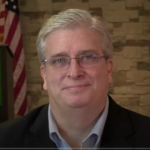If you don’t visit Freedom Pub and the Heartlander digital magazine every day, you’re missing out on some of the best news and commentary on liberty and free markets you can find. But worry not, freedom lovers! Heartland Weekly is here for you every Monday with a highlight show. Subscribe to the email today, and read this week’s edition below.
What Would Happen If We Said ‘Hell No’ to Teachers Unions?
Teresa Mull, Townhall
Randi Weingarten, the notorious president of the American Federation of Teachers (AFT), said at a recent AFT convention she and her cronies are going to say “hell no” to the Trump administration because of its support of education choice. If only saying “hell no” were enough to make organizations we didn’t like cease to exist! Parents have been saying “hell no” to teachers unions for ages, and the fact that Weingarten declared the current administration the “first … to say ‘hell no’ to public education” indicates their voices are finally being heard. READ MORE
Big Labor Bullies First Amendment With Scientology Playbook
Michael Hamilton, Orange Country Register
Big labor unions are using a strategy against the Freedom Foundation similar to the strategy the Church of Scientology used to defeat the IRS. The Service Employees International Union has filed multiple expensive lawsuits against the foundation in hopes of defunding it. To SEIU, bleeding the Freedom Foundation dry is as good as a court order blocking the foundation’s freedom of speech. READ MORE
Only Liberty Can Loose the Gordian Knot of Health Care Reform
Michael Hamilton, Consumer Power Report
In the final edition of the Consumer Power Report, learn how large-scale reforms of the United States’ health care system are a Gordian knot that only a renaissance of liberty can loose. Our knotty health care system (which is also a considerably naughty system) is engaged in a great tug of war. If you expand health insurance coverage to the poor, you impoverish the masses. If you swing wide the gates for uninsurable people to buy health insurance, you shut the door on healthy people wanting inexpensive, catastrophe-only insurance. These are policy knots. There are others. READ MORE
Featured Podcast: Adam Millsap, on Ranking States’ Fiscal Stability
In this episode of the Heartland Daily Podcast, John Garven, president and founder of Benico, Ltd., speaks with Heartland’s director of communications, Jim Lakely, on the current state of health care in the United States. Garven starts by describing the state of health care prior to the implementation of the Affordable Care Act (ACA). He covers the difficulties health practitioners have with the bureaucracy ACA brought. With the expansion of Medicaid, ACA left people with a sense of entitlement versus working for their own insurance. Garven and Lakely go on to discuss health care reform, including the beneficial role health savings accounts can have in our health care system. LISTEN TO MORE
HEARTLAND’S PODCASTS NOW ON SOUND CLOUD
Heartland’s podcasts have grown steadily since going “daily” in 2010—on pace for nearly two million downloads in 2017 on iTunes! Now, the Heartland Daily Podcast is also available on SoundCloud, so you have yet another convenient and dynamic way to listen to the country’s best podcasts on school reform, budgets, taxes, health care, environment, energy, and constitutional reform. Follow us on SoundCloud, get the app for your phone, and grab the easy-to-use player to embed on your own blogs or social media accounts. CLICK HERE
State and Local Governments Pledge to Shackle Economies Under Paris Agreement’s Terms
Isaac Orr, Red State
In an open letter to the international community, titled “We Are Still In,” more than 1,200 officials—including governors, mayors, college presidents, city governments, and members of the business community—have come out in support of voluntarily continuing the terms of the Paris climate accord. Although the signatories were quick to pat themselves on the back, claiming they were primarily responsible for the dramatic decrease in greenhouse-gas emissions in the United States in recent years, in reality, the signatories had pretty much nothing to do with reducing carbon-dioxide emissions. READ MORE
School Choice Could Be Reducing Crime, Studies Show
Teresa Mull, School Choice Weekly
More and more studies suggest increased education choice may result in a decreased crime rate. According to an article in the American Spectator, there is growing evidence that giving parents the ability to choose their child’s school can reduce crime and all the associated costs alongside it. Fewer kids in trouble with the law, more kids learning, lower costs for taxpayers? Sounds like a win, win, win … unless you’re a member of a teachers union, in which case you celebrate criminality. READ MORE
Elizabeth Warren’s CFPB: This Is Progress?
Peter Ferrara, Investor’s Business Daily
For a century now, American law has recognized the freedom of the parties to a contract to agree to submit disputes to arbitration. Arbitration allows experts chosen by the parties to consider and rule on the issues, much more quickly and at much lower costs. Today, more disputes are settled through such private dispute resolution services than through all the federal and state courts combined. But progressives are certain they know better. Earlier this month, the Consumer Financial Protection Bureau (CFPB) issued a ruling barring contractual, mandatory arbitration clauses for class-action lawsuits. READ MORE
Transforming the Science Used For (Climate) Regulations
H. Sterling Burnett, Climate Change Weekly
The massive number of rules and regulations issued in the United States annually impose billions of dollars in costs on individuals and businesses. Regulatory costs top $1.9 trillion annually, amounting to $14,842 per U.S. household. That’s nearly $15,000 unavailable to pay for health insurance, medicine or medical bills, college expenses, groceries, a new car, or vacations. Because the economic and human health implications of regulations are profound, the science they are built upon must be unimpeachable. Yet the public can have little confidence the rules forced upon them are scientifically justified. READ MORE
Bonus Podcast: Nick Dranias: Alternative Path to Constitutional Reform
Nick Dranias, president and executive director of Compact for America Educational Foundation, Inc. and policy advisor for The Heartland Institute, sits down with Government Relations Coordinator Arianna Wilkerson to chat about an alternative path to constitutional reform. Dranias advocates for states to adopt the Compact for a Balanced Budget, an interstate agreement to add a balanced budget amendment to the U.S. Constitution. He details why the compact is an easier process to amend the Constitution compared to the Article V process and addresses criticisms of Compact for America. LISTEN TO MORE
Charting the Impact of Trump’s Deregulation on Manufacturing
Thomas Hemphill, RealClearMarkets
President Donald Trump has made advancing American manufacturing the cornerstone of his economic agenda., and the first six months of the Trump administration have occurred in concert with positive growth for the U.S. manufacturing sector. The Institute for Supply Management reported U.S. manufacturing activity expanded in June at the fastest pace in nearly three years and recorded the second highest reading in more than six years. Manufacturing growth in June accelerated and was broad-based, with 15 of 18 manufacturing industries showing growth. READ MORE
Tesla Battery, Subsidy and Sustainability Fantasies
Paul Driessen, CFACT
The first justification for subsidizing electric vehicles was that internal combustion engines polluted too much. But emissions steadily declined, and today’s cars emit about 3 percent of what their predecessors did. Then it was oil imports: Electric vehicles (EVs) would reduce foreign dependency and balance of trade deficits. Bountiful oil and natural gas supplies from America’s hydraulic fracturing revolution finally eliminated that as an argument. READ MORE
Talk With Heartland Experts!
You are cordially invited to participate in an exclusive monthly conference call for supporters who give $250 or more to The Heartland Institute. The first Wednesday of each month we will host a 20- to 30-minute call with a short presentation by one or more of Heartland’s senior staff.
Please RSVP to Gwendalyn Carver at 312/377-4000 or [email protected]. You will receive dial-in information upon confirmation of your participation. DONATE HERE
Help Us Stop Wikipedia’s Lies!
Have you visited Heartland’s Wikipedia page recently? The good news is that it is more complete than it was just a couple months ago, after leftists took it over and trashed it. Most of the new information is accurate and unbiased. But the lies and libel about our positions on smoking and climate change remain. Other conservative and free-market sites suffer, too. Wikipedia refuses to make many of the changes we request and deletes and reverses the changes made by others. We need your help! READ MORE





